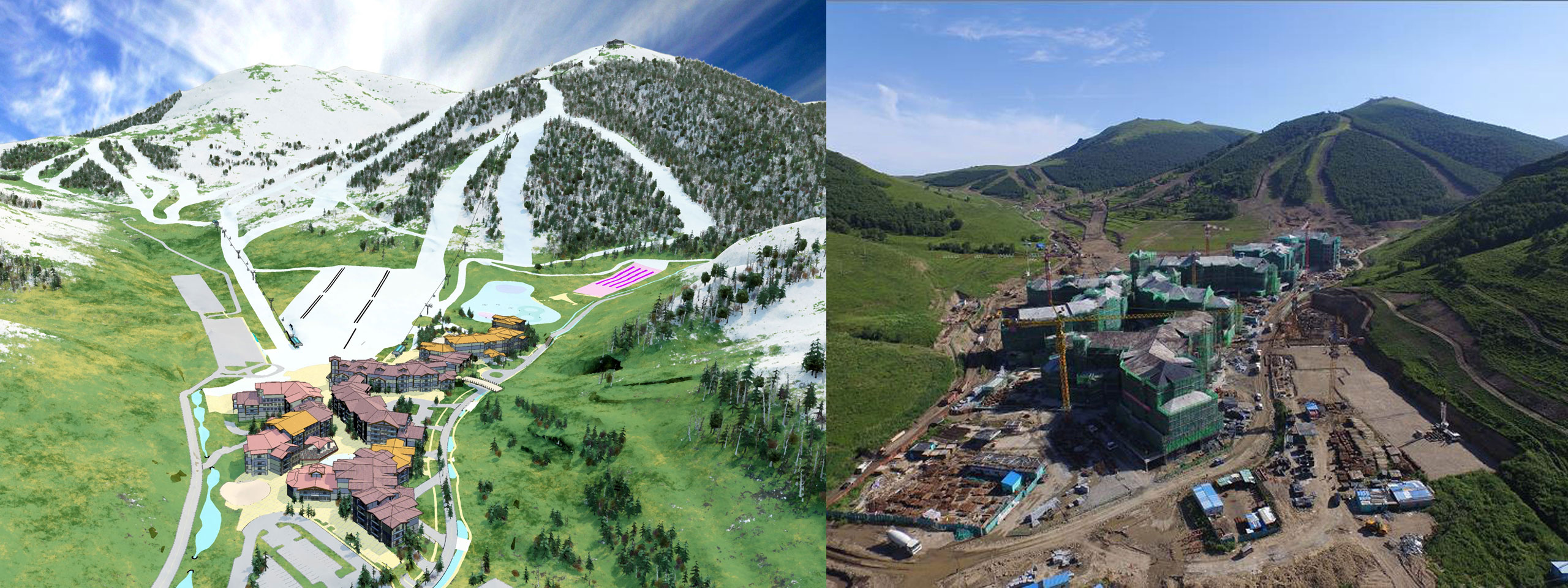 As the number of Chinese taking to the slopes each year grows by leaps and bounds, one local company has positioned itself at the centre of the country’s ski boom.
As the number of Chinese taking to the slopes each year grows by leaps and bounds, one local company has positioned itself at the centre of the country’s ski boom.
Whistler-based Ecosign Mountain Resort Planners unveiled its latest world-class ski resort at a special event in China this month: the Thaiwoo Four Season Destination Resort.
“It has the potential to be one of, if not the best ski resort in China,” said Ecosign’s VP of resort design, Ryley Thiessen.
Located just a three-hour drive from Beijing, Thaiwoo is the culmination of nearly a decade of work in the region for the company, which also designed nearby Genting Secret Garden Resort.
“It’s creating a critical mass of several world-class resorts with good ski terrain and good facilities,” Thiessen said. “When you have all these things happening in one region at more than one resort, you have options and it attracts people for a much longer period of time.”
The resort, slated to open next month, offers over 500 metres of vertical, 18 kilometres of ski trails and two high-speed chairlifts. Featuring wide, cruiser-type trails that follow the mountain’s every twist and turn, as well as expert runs ready for FIS competition, Thiessen said the terrain can accommodate every level of skier.
“We always want to have a balance that is suited to the market,” he added, noting that the majority of Chinese skiers fall into the beginner or intermediate categories.
But it wasn’t just skiers’ ability level that had to be factored into the resort’s plans.
“There were so many cultural differences that we had to take into consideration when we were designing,” Thiessen noted.
Case in point: Thaiwoo’s comprehensive beginner ski centre that gives non-skiers a front-row view of all the downhill activity.
“It’s really important to have a big snow apron where the village and the mountain meet. That’s probably the most important zone of any ski resort, even in Whistler, but it’s even more important in China,” said Thiessen. “That’s because the people who don’t ski, they still want to stand there and watch, throw snowballs or actually walk beside their children while they’re learning to ski.”
A day on the mountain is also more of a family affair in China, Thiessen said — with “mom, dad, grandpa and grandma” often accompanying younger skiers. In fact, Ecosign estimates that only about 50-per-cent of Chinese resort visitors will actually strap on skis, making the off-mountain amenities on offer that much more crucial.
“You have to have all these other amenities, whether it’s other sports, good restaurants, wellness and lifestyle activities, for people to enjoy while others may be skiing,” said Thiessen.
With a burgeoning middle class attracted to the mountain lifestyle, the potential for growth in China’s ski industry is mind-boggling. The China Ski Association puts the total number of skiers today at 10 million, about one per cent of the population. But officials are banking on the hype of the 2022 Games to entice 300 million to the slopes in the coming years.
“Once people in the southern provinces and other parts of China get introduced to snow and are comfortable with it, they’re going to be the future skiers at all of these other bigger destinations,” said Thiessen, who believes Western ski resorts should start preparing themselves today for the Chinese skier of tomorrow.
“I think we’re going to see that change in the next five to 10 years, and I really hope we’re ready for it. I really hope we choose to spend some time and focus on it, whether it’s having more translators or different meal options that cater to the Chinese market.”
With six Olympic venues under its belt, Ecosign has put its stamp on some of the most revered ski resorts around the globe. But no matter where its iconic designs end up, the company always brings a piece of Whistler with it.
“Living here, it allows us to not only be better designers, but we can look at the changes that take place in a very successful resort… and then apply that to all of our designs all over the world,” Thiessen said.

